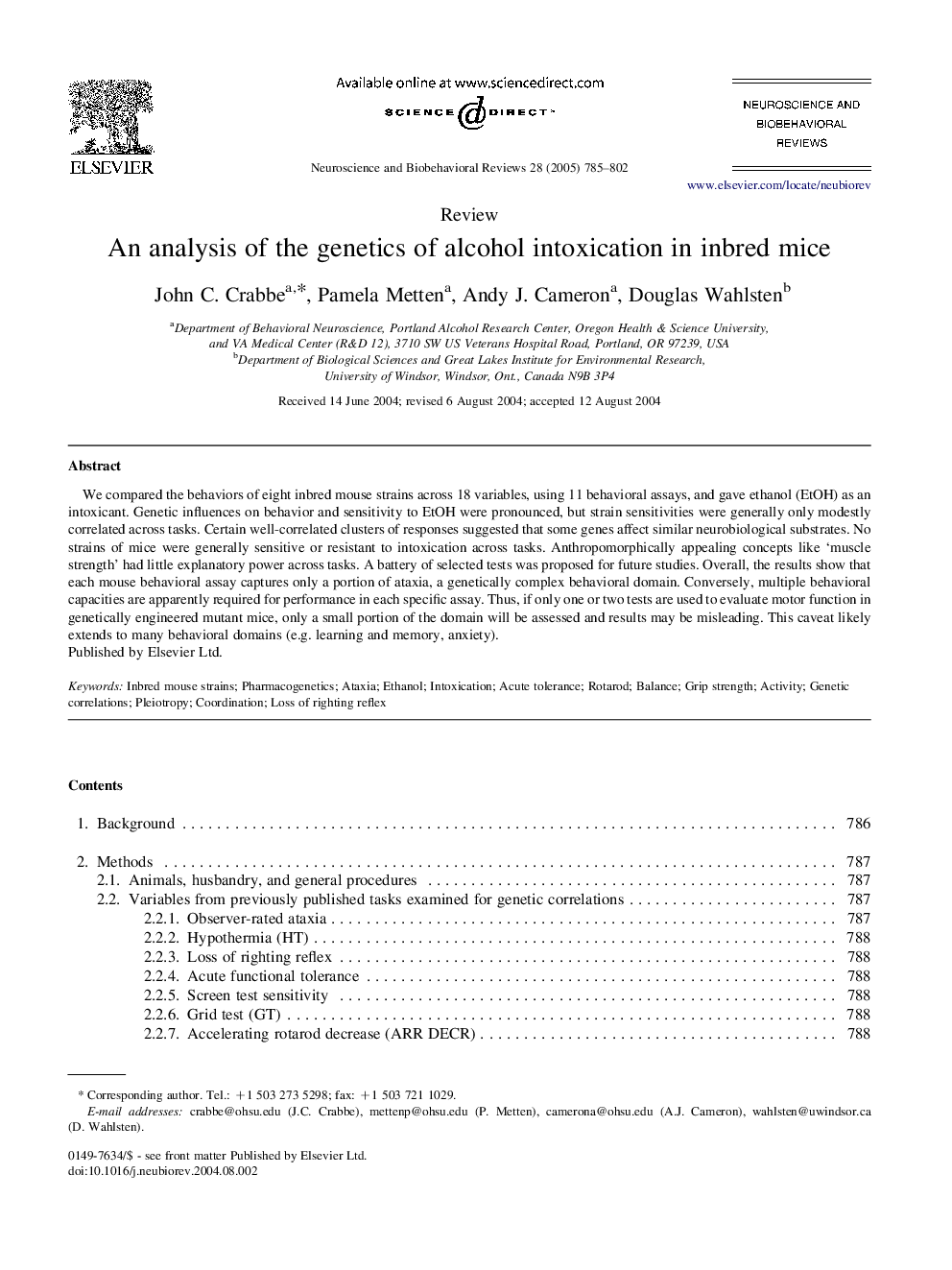| Article ID | Journal | Published Year | Pages | File Type |
|---|---|---|---|---|
| 10461898 | Neuroscience & Biobehavioral Reviews | 2005 | 18 Pages |
Abstract
We compared the behaviors of eight inbred mouse strains across 18 variables, using 11 behavioral assays, and gave ethanol (EtOH) as an intoxicant. Genetic influences on behavior and sensitivity to EtOH were pronounced, but strain sensitivities were generally only modestly correlated across tasks. Certain well-correlated clusters of responses suggested that some genes affect similar neurobiological substrates. No strains of mice were generally sensitive or resistant to intoxication across tasks. Anthropomorphically appealing concepts like 'muscle strength' had little explanatory power across tasks. A battery of selected tests was proposed for future studies. Overall, the results show that each mouse behavioral assay captures only a portion of ataxia, a genetically complex behavioral domain. Conversely, multiple behavioral capacities are apparently required for performance in each specific assay. Thus, if only one or two tests are used to evaluate motor function in genetically engineered mutant mice, only a small portion of the domain will be assessed and results may be misleading. This caveat likely extends to many behavioral domains (e.g. learning and memory, anxiety).
Keywords
Related Topics
Life Sciences
Neuroscience
Behavioral Neuroscience
Authors
John C. Crabbe, Pamela Metten, Andy J. Cameron, Douglas Wahlsten,
